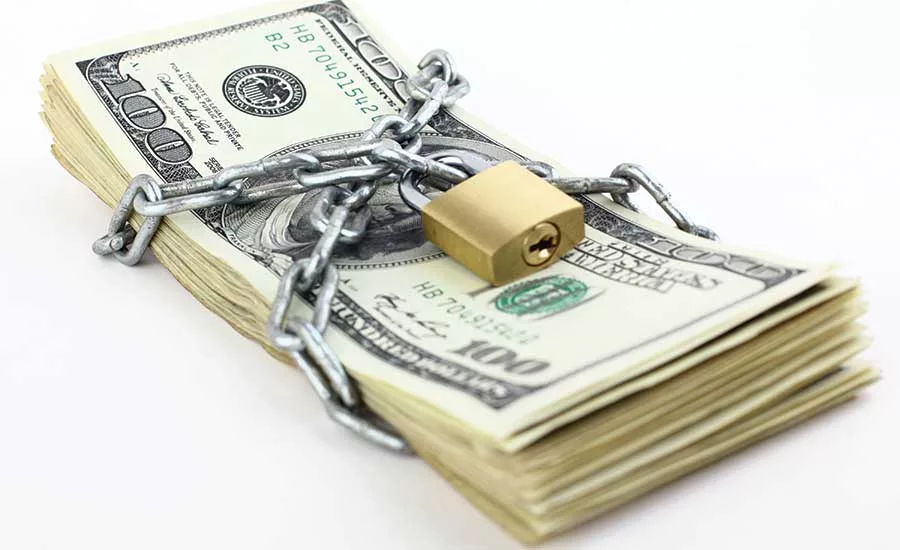One in 10 Roofing Contractors Face Internal Theft, Will You Be One of Them?
Do everyone a favor and put processes in place to protect the company and its employees.

Roofing contractors work hard each and every day. The sheer daily tasks of finding, estimating and installing jobs can be overwhelming. Many are too busy to keep a close eye on the numbers and fail to put anti-theft safeguards in place.

Roofing contractors work hard each and every day. The sheer daily tasks of finding, estimating and installing jobs can be overwhelming. Many are too busy to keep a close eye on the numbers and fail to put anti-theft safeguards in place.
Roofing contractors work hard each and every day. The sheer daily tasks of finding, estimating and installing jobs can be overwhelming. Many are too busy to keep a close eye on the numbers and fail to put anti-theft safeguards in place. Remember, you put locks on doors to help honest people from being tempted. Many of your employees face daily financial challenges. Put processes in place to protect them from themselves.
Despite our best warnings and teachings, we find one in 10 of our contractor customers experience some type of office embezzlement. In contrast, only one out of 100 experience a fire, tornado or other natural catastrophic events. It can happen to you and the electronic nature of banking and financial transactions creates an ever-growing threat. Most banks no longer want to provide written copies of checks making the risk even greater.
Start by reviewing your theft insurance coverage. Rates for theft insurance varies greatly from state to state. Some policies automatically include a certain amount of coverage. Understand how the coverage works, how much you’re covered for and if that amount is per incident or per year.
You name it, we’ve seen it. From the office manager having an affair with the warehouse manager and they doing side work, to a case involving a working class $60,000-a-year bookkeeper having a $10,000 watch and $60,000 car. Another contractor’s daughter was the office manager and she stole hundreds of thousands of dollars to support a drug habit. Ironically, his insurance covered him but to collect he would have to prosecute his daughter. He chose bankruptcy and financial ruin instead of prosecution. In each case, the owner wasn’t paying attention to the details. When the theft was discovered, the owner’s first remark is he or she can’t be stealing from me.
Here are some of the many ways we have seen office personnel steal from contractors. Falsifying checks, using company credit cards, overpaying themselves, creating phony employee checks, overpaying their family members that may be working for you, buying material and doing side jobs, creating fake jobs and customers. These are just a few of the ways you may fall victim. In accounting class, they teach you to create the illusion of inventorying a liquor store every week. No one can inventory every week but if employees think you are looking, they are less likely to steal. If your people think you are not on top of things, they are more likely to get sloppy with your money. It can start with something as simple as using company stamps and graduate to charging thousands of dollars on your credit cards.
You can’t always protect yourself but here are some safeguards to put in place:
- Have bank and credit card statements come to your home or personal email.
- Try to have someone independent or who does not write the checks balance the checkbook each month.
- Get written copies of checks and if not available, create an established process for you to look at checks each and every month.
- Run a monthly financial meeting. If things don’t seem right, ask lots of questions. Know your numbers.
- In states where it is legal, always run a credit and background report on office managers, bookkeepers and others that will handle your money. If they can’t manage their money, how can they manage yours?
- Don’t steal from the company yourself by taking cash and not reporting it. If it’s OK for you to steal from the government, why is it not OK for them to steal from you?
- Put limits on all employee credit cards and review them carefully.
- Create a purchase order system.
- Do common sense things like compare employee gas cards to how many miles are put on the company vehicle each month.
Employees can also steal time. Field electronic payroll is a rapidly growing industry. For the office, there are simple programs that monitor when a computer is logged in and out of. GPS on phones and trucks can help with monitoring employee hours. If you use GPS, create simple reports and spot check them when payroll is done. One contractor was surprised his project manager had a drug habit. However, when reviewing the GPS on the company truck, the employee was frequently taking the company truck into sketchy neighborhoods at 3 a.m.
Let your accountant and insurance company be the bad guy. Let them write a letter making safeguard suggestions. If people ask, simply say it is not for them, you know they are honest. It is just part of company policy.
Another area of risk is cyber theft. You may want to have a security audit. You also may want to do accounting on a separate server that does not get email. Let the professionals see if you are at risk. Remember that consumer laws regarding bank accounts and credit cards do not necessarily cover business accounts. You may find it tough to collect on a $100,000 fund transfer that went to Russia or Nigeria at 2 a.m.
Worse than the financial hit of having employee theft is the loss of trust in someone you entrusted. Such betrayal can be emotionally devastating. Do everyone a favor and put processes in place to protect the company and employees.
Looking for a reprint of this article?
From high-res PDFs to custom plaques, order your copy today!




